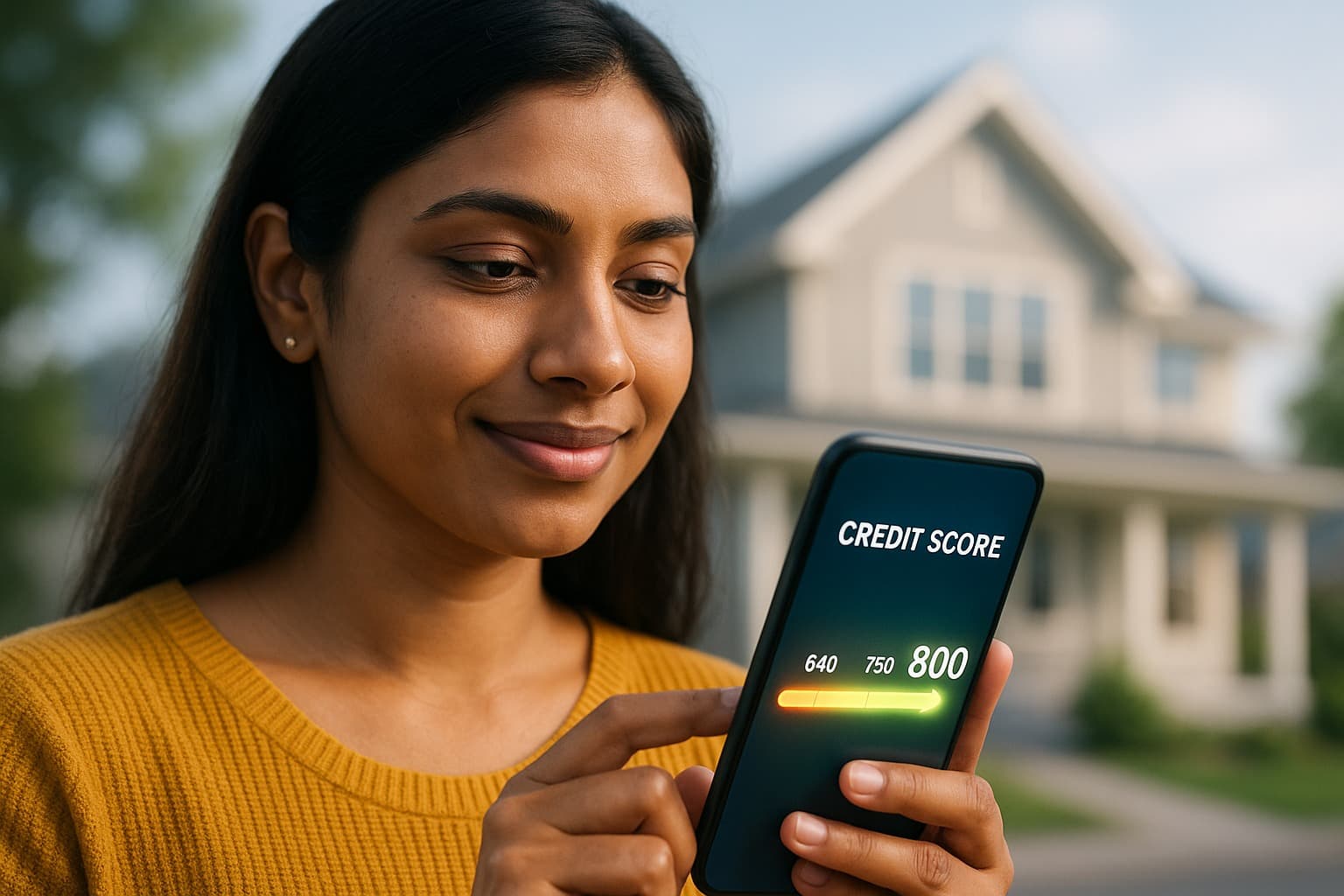Credit Score & Home Loans in India: How Your CIBIL Score Decides Approval & Interest Rates
Summary
Your CIBIL score is crucial for home loan approval and interest rates in India. A higher score unlocks better rates and loan amounts, while a lower score can lead to rejection. Improve your score with timely payments and responsible credit use.

The Indian Dream: Owning a Home
Ask any Indian family what their biggest dream is, and most will say the same thing: “apna ghar” — our own home. It’s not just about walls and roofs. It’s about stability, pride, and the feeling of finally saying, “Yeh ghar hamara hai.”
But there’s one big reality check: most of us can’t buy a home outright with savings. We turn to banks for a home loan. And this is where a three-digit number, called your credit score, quietly steps into the picture.
For some, it opens doors instantly. For others, it becomes a frustrating roadblock. The difference between the two? How disciplined you’ve been with your finances.
What Is a Credit Score, Really?
Let’s break it down simply. A credit score is like your financial report card. It shows how well you’ve handled money in the past — whether you’ve paid your EMIs on time, cleared your credit card bills, or defaulted somewhere along the way.
In India, the most commonly used score is the CIBIL score, which ranges from 300 to 900.
Above 750 → Excellent, banks will roll out the red carpet.
700–749 → Good, but you may need to negotiate.
650–699 → Average, approvals are possible, but costlier.
Below 650 → Risky, banks may flat-out reject you.
Think of it like this: when you’re applying for a loan, banks are essentially asking, “Can we trust this person to pay us back?” Your score is your answer sheet.
How Credit Score Affects Home Loans

Most people think banks only look at your salary. But here’s the truth: your credit score decides far more than you realize.
Loan Approval – High score? Fast approval. Low score? Endless delays or rejection.
Interest Rates – With a 780+ score, you might get a loan at 8.2%. With a 650 score, the same loan could cost you 9.5% or more.
Loan Amount – A good score can get you that full ₹50 lakh loan. A weak one may shrink it to ₹30–35 lakh.
Processing Speed – High scores mean less paperwork and quicker sanctions.
Imagine two friends — Aarav and Ramesh. Both earn ₹1.2 lakh a month. Aarav has a score of 785, while Ramesh has 640. Aarav’s loan gets approved in two days at 8.25% interest. Ramesh waits three weeks and finally gets a loan at 9.6%. Over 20 years, Aarav saves lakhs — simply because he managed his credit better.
Why Do So Many Indians Struggle With Credit Scores?
The sad part? Many Indians don’t even know their credit score until it blocks their dream home. Some of the most common reasons behind a poor score are:
Missing EMIs or paying late
Overusing credit cards (maxing them out regularly)
Too many loan applications at once
No credit history at all (sounds surprising, but if banks don’t know how you behave with credit, they hesitate)
Take the case of Shweta, a 28-year-old in Pune. She earned well but never cared about her credit card bills during her early career. When she applied for a home loan with her husband last year, their dream flat was slipping away because her score pulled down their joint application. It was a harsh wake-up call.
Can You Fix a Low Credit Score? Absolutely!
Here’s the good news: your credit score is not permanent. It’s like your health. With consistent care, you can improve it.
Here’s how:
Always pay EMIs and credit card bills on time. Even a single late payment dents your score.
Use less of your credit limit. Spending 90% of your card limit every month looks risky. Keep it under 30%.
Stop applying for multiple loans at once. Each application makes banks suspicious.
Check your credit report regularly. Mistakes happen — like showing a loan you never took.
Build credit history. If you’ve never taken credit, start small with a card or personal loan and repay diligently.
Within 6–12 months, disciplined steps like these can lift your score significantly.
Myths About Credit Score That Mislead Homebuyers
Indians love myths — and credit scores are no exception. Let’s bust a few:
“I don’t use credit cards, so my score must be perfect.” Wrong. No history can hurt as much as bad history. Banks want to see responsible usage.
“Checking my credit score lowers it.” False. Only when banks check repeatedly (hard inquiry) does it dip. You checking it yourself? Totally safe.
“High income = easy loans.” Nope. Even if you earn ₹5 lakh a month, a history of defaults will scare banks away.
The Emotional Side of Loan Rejections
Here’s the human truth: a home loan rejection is not just about money. It’s about broken expectations.
Parents feel helpless when their kids can’t get a loan. Couples delay moving into their dream home. Young professionals feel embarrassed when their applications are denied despite earning well.

It can feel unfair. But look at it this way: your credit score is not a punishment. It’s just a reminder to build financial discipline.
Preparing for a Home Loan the Smart Way
If you’re planning to buy a house in the next year or two, don’t wait until the last minute. Start preparing your credit profile now. Experts suggest:
Check your score 12–18 months before applying.
Clear small debts first.
Avoid new loans close to your home loan application.
Keep some savings ready — banks love seeing that you’re financially stable.
This way, when you finally walk into a bank, you’ll be negotiating from a position of strength.
Conclusion
At the end of the day, buying a home in India is about more than just property prices or EMIs. It’s about financial trust. And your credit score is the single most important reflection of that trust.
So the next time you dream of that balcony view or that extra bedroom, remember — the foundation of your dream isn’t just bricks and cement. It’s the three-digit number that tells the bank, “Yes, this person is reliable.”
Summary (100 words)
Your CIBIL credit score is the key to home loan approval and interest rates in India. Most banks prefer scores above 700, while 750+ opens doors to better rates and faster approvals. A strong score means lower EMIs and higher loan eligibility; a weak one can lead to rejection or expensive borrowing. Poor scores often stem from missed EMIs, maxed-out credit cards, or lack of history. The good news? You can fix it with timely payments, low utilization, and steady credit use. For Indian homebuyers in 2025, your credit score isn’t just a number — it’s the gateway to your dream home.
Video will be embedded from: https://youtu.be/WQbReyTWpk4
